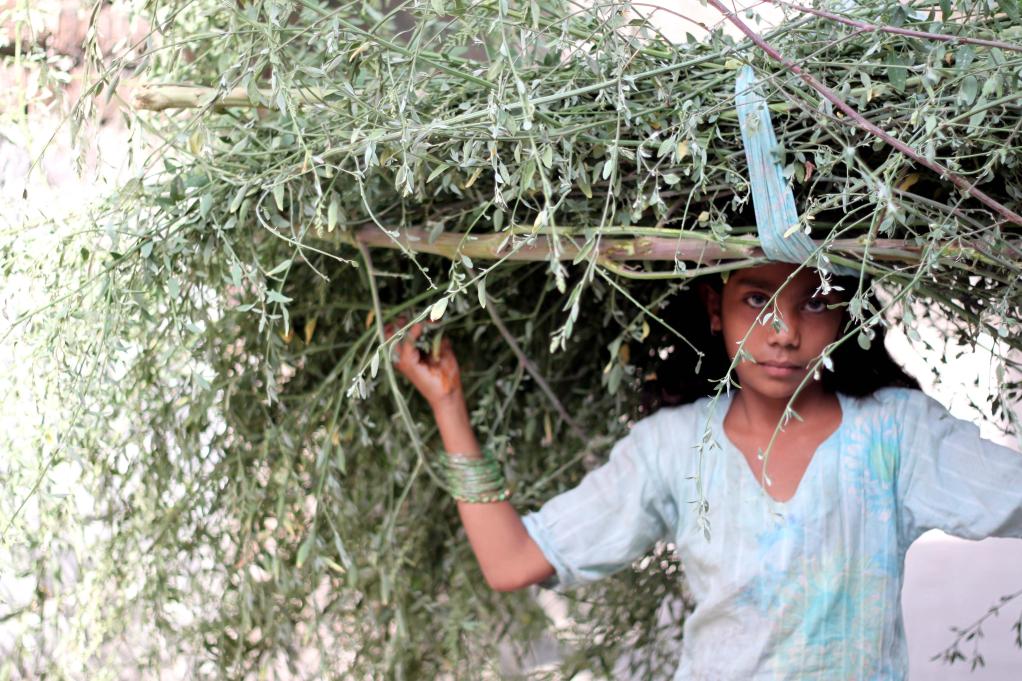
According to a report submitted by the World Bank, nearly 40% of people living in Pakistan live below the poverty line. Such individuals barely make ends meet. So in the case of a sudden emergency, they are forced to accept debt from a wealthy individual. This debt is accompanied by a staggering interest rate which the debtor has no chance of ever repaying. The reason is they live from hand to mouth even without the enormous debt hanging over their heads like a sword.
So in a moment of desperation, they sign a contract with the creditor to work for their industry until they repay their debts. Mostly, only half of the promised wage is obtained by the debtor while supposedly the creditor puts the other half towards loan payment. So in the end, the debtor is left with an abysmal wage and can’t even scrape by. Therefore, he is once again forced to take even more debt. Hence this vicious cycle continues which entraps an individual in generational debt. This is the tale of innumerable poverty-stricken Pakistanis who find themselves entangled in a hopeless situation known as debt bondage.
Apart from the appalling wages, the hazardous working conditions add to this bitter truth. As the majority of bonded labourers are entrapped in the brick kiln industry, they work long hours each day breathing in the harmful dust under the scorching sun. These deplorable conditions are the cause of thousands of children’s premature deaths. Appalling work conditions and little to no pay coupled with the inability to leave their dreadful job for a better one due to a binding contract, makes this heinous crime an atrocity to humanity. This wicked crime makes millions of people go through hell each and every day for the rest of their and their children’s life.
The Bonded Labour System (Abolition) Act of 1992 along with the Bonded Labour System (Abolition) Rules of 1995 completely outlaw bonded labour. Therefore, The Constitution of Pakistan forbids slavery and bonded labour. However, according to the Global Slavery Index 2021, an estimated 2.3 million Pakistanis are still subject to modern-day slavery in Pakistan. Today, in 2023, Undoubtedly the number would’ve had a significant increase. All of this is being done in broad daylight and the government and people in power seem to constantly turn a blind eye to this pressing predicament. The reason being that the criminals in this whole affair either are the aforementioned people in power or rich people with immense political influence and connections.
Although slavery is believed to be abolished, so the question arises are these bonded labourers, not modern slaves? The general public is ignorant of this inhumane and heart-wrenching truth about the millions of people trapped in modern slavery in our country. As the Pakistani government has abandoned them, so we, the readers of VoiceBox have to take the responsibility to be the hope for these hopeless and raise awareness about this issue. These blatant criminals are stealing the future from millions of people but are still roaming freely with no consequence whatsoever. We need to strive towards putting these people who are wolves in sheep’s clothing to justice.
Support Young Creators Like This One!
VoiceBox is a platform built to help young creators thrive. We believe that sharing thoughtful, high-quality content deserves pay even if your audience isn’t 100,000 strong.
But here's the thing: while you enjoy free content, our young contributors from all over the world are fairly compensated for their work. To keep this up, we need your help.
Will you join our community of supporters?
Your donation, no matter the size, makes a real difference. It allows us to:
- Compensate young creators for their work
- Maintain a safe, ad-free environment
- Continue providing high-quality, free content, including research reports and insights into youth issues
- Highlight youth voices and unique perspectives from cultures around the world
Your generosity fuels our mission! By supporting VoiceBox, you are directly supporting young people and showing that you value what they have to say.





